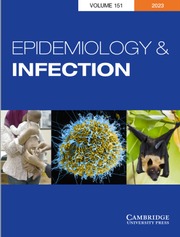Article contents
Microbiological quality of desiccated coconut
Published online by Cambridge University Press: 19 October 2009
Summary
A microbial survey of Sri Lankan desiccated coconut has been made on material purchased in supermarkets in Sheffield or on material obtained directly from the processing company. The total viable count (TVC) was reduced by spoilage and pasteurization from 104/g to 103/g. Most samples contained low levels of coagulase-positive Stephylococcus aureus suggesting that this commodity had been handled during production. One focus of contamination with Aspergillus flavus was found for each 8·34 g of desiccated coconut (mean contamination). The number of bacteria and moulds in spoiled coconut was significantly lower than that in coconut obtained from the processor or purchased from retail outlets. It is suggested that the accumulation of free fatty acids, aliphatic methyl ketones and secondary alcohols produced during fungal spoilage has had a bactericidal and fungicidal effect. The use of microbial specifications for foods is questioned in situations where there is evidence of microbial spoilage having taken place.
- Type
- Research Article
- Information
- Copyright
- Copyright © Cambridge University Press 1986
References
REFERENCES
- 3
- Cited by


